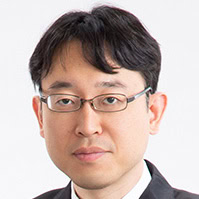
2024 May 15
Tokyo, Japan
Thank you for Attending
Thank you to all who joined us for AI Open Innovation Day!
We look forward to seeing you at future events.
Videos
To experience the best of this year’s event, be sure to watch session recordings, available on The Linux Foundation’s YouTube Channel.
Featured Speakers
-

Mariko Isogawa received her B.S., M.S., and Ph.D. degrees from Osaka University, Japan, in 2011, 2013, and 2019, respectively. From 2013 to 2022, she worked at Nippon Telegraph and Telephone Corporation as a Researcher. She was a Visiting Scholar at Carnegie Mellon University from 2019 to 2020. Since 2022, she has been affiliated with Keio University. She is currently an Associate Professor in the Department of Information and Computer Science, Faculty of Science and Technology, Keio University. Her research interests include computer vision, pattern recognition, sensing, and machine learning.
-

After gaining experience in systems development and design direction for government agencies, I joined Fenrir Inc. in 2014. Since joining the company, I have managed organizational leadership and pre-sales, handling projects for major clients across various sectors including finance, manufacturing, railway, broadcasting, and education. In July 2020, I was appointed as the head of the newly established Cloud Native Technology Department. Starting in 2024, I began serving as the community leader for OpenSSA in Japan, leading innovations in artificial intelligence technologies. My special skills include programming in Python, drawing, and learning business English.
-

Sadao Kurohashi received a PhD in Electrical Engineering from Kyoto University in 1994. He is currently the Director-General of the National Institute of Informatics, Japan, and a specially appointed professor at the Graduate School of Informatics at Kyoto University.
His research interests include natural language processing, knowledge infrastructure, and open science. He received the 10th and 20th anniversary best paper awards from Journal of Natural Language Processing in 2004 and 2014, respectively, 2009 IBM faculty award, and the 2010 NTT DOCOMO mobile science award, and the 2017 Commendation for Science and Technology by the Minister of Education.
-

Akira Shibata heads Weights & Biases for Japan and Korea, accelerating ML in development and in production for a wide range of industries including LLM and autonomous driving. Akira is a renowned entrepreneur and data scientist with a Ph.D.
in Physics from the University of London. Akira specialized in business value creation with data and AI for over a decade and held positions such as CEO of DataRobot Japan and COO of Qosmo, Inc. Personal blog: https://ashibata.com
-

Christopher Dewan is passionate about using Open Source to bridge the gaps between research and production. At Meta AI, he has worked on Translation, PyText, MultiRay, and OPT-175. He is currently focused on the applications of AI in Instagram in Tokyo Japan, where he lives with Jasmine, a cat who gets more likes on Instagram then him. You can find him at @m3rlin45 on Instagram and m3rlin.net
-

Established Baobab in 2010. At the same time, she worked for National Institute of Information and Communications Technology (NICT) from 2011 to 2013. Currently, Baobab manages over 1,200 annotators globally, and provides a wide range of annotation services such as text, multimodal, and LLM to corporations and research institutions as well as consulting services based on their extensive knowledge. With its trained annotation professionals, proprietary tool development, and thorough quality control, Baobab is known as the best provider of high-quality data.
Her co-authored paper was accepted at CVPR 2022 (The IEEE / CVF Computer Vision and Pattern Recognition Conference ). In 2023, Baobab was selected for the “J-Startup Impact” program by the Ministry of Economy, Trade and Industry (METI), and is participating in the research and development of domestically produced generative AI models.
-

Naoaki Okazaki, currently a professor at the School of Computing, Tokyo Institute of Technology, earned his PhD in 2007 from the Graduate School of Information Science and Technology at the University of Tokyo. His early post-doctoral career included a research position at the same institution. Subsequently, he became an associate professor at the Graduate School of Information Sciences at Tohoku University. He specializes in Natural Language Processing and Artificial Intelligence. His career is marked by numerous awards, such as the Young Scientists’ Prize, the Commendation for Science and Technology by the Minister of Education, Culture, Sports, Science and Technology. In addition, he was honored with the 2016 Microsoft Research Award on Information Processing.
-

Nghi Bui, Ph.D., holds a dual role as the Head of AI Research at FPT Software AI Center and Research Manager at the Intelligent Software Lab, Singapore Management University (SMU). His academic credentials were established at SMU, where he received his doctorate in Computer Science in 2020. Prior to his current roles, Nghi held senior positions at premier AI research labs including Huawei Research Ireland and Salesforce AI Research. His research interests include software analytics, deep learning, and the theory of programming languages. Dr. Bui is also known for his leadership in generative AI for software development and has a strong publication record across diverse computer science domains, such as Software Engineering (ICSE, ESEC/FSE, ASE), Artificial Intelligence (AAAI, NeuRIPS), Natural Language Processing (ACL, EMNLP) and Information Retrieval (SIGIR). He is also a prolific open-source contributor with his projects collectively receiving about 4,000 stars.
Open innovation in AI software, algorithms, data and models has enabled the rapid progress we have seen over the past couple of years in large language models and generative artificial intelligence. Moving forward, open innovation has an important role to serve in ensuring that AI is safe, trusted, and beneficial to all of society. Join us for an event to learn about the latest advances in AI in Japan and globally, and explore how open technologies and open communities are a key ingredient to the successful advancement of AI.
This event is brought to you by the AI Alliance and The Linux Foundation. The AI Alliance is a new global partnership of leading organizations in AI that are supporting and accelerating open innovation, with a growing list of prominent members in Japan. The Linux Foundation is the organization of choice for the world’s top developers and companies to build ecosystems that accelerate open technology development and commercial adoption. It hosts over 900 open source projects including dozens of AI and data projects.











